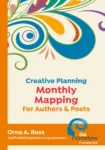
Photo by AbsolutVision on Unsplash
Today marks the halfway-point through 2024! And here at the Alliance of Independent Authors we’ve been reflecting on what has been bringing success to our members so far this year.
We recently asked our forum members on SelfPubConnect “What's the one self-publishing author tip or trick you've learned that's made a big difference to your writing and publishing journey?” and it really got a reaction! Over 100 authors shared their advice, and we’ve gathered 25 of our favorite responses here.
Look out for links to ALLi blog posts, podcast episodes, or guidebooks for more advice to help you on your own journey through self-publishing.
Looking to join the ALLi Author forum?
For ALLi members who haven’t yet signed up to join the new forum, it takes just a couple of minutes to create an account and request access. Join the conversation here: SelfPubConnect
If you aren't a member of ALLi, you can join our global membership association here: The Alliance of Independent Authors (ALLi). A non-profit, our mission is ethics and excellence in self-publishing. Membership will give you access to our exclusive author forum along with a range of other benefits and guidance.
25 Indie-Author Tips and Tricks from ALLi Members
1. Build a business plan and monitor it regularly
 Marie Powell: “Develop a plan or a set of goals for your writing business, and check them once each quarter to see if you need to make adjustments. (Some say to check once a month, but that can become overwhelming).”
Marie Powell: “Develop a plan or a set of goals for your writing business, and check them once each quarter to see if you need to make adjustments. (Some say to check once a month, but that can become overwhelming).”
You can find lots of practical advice and support for planning your author business in the ALLi guides. Available from the ALLi bookstore, with ebooks free to download for members. Guidance includes the Creative Planning: Monthly Mapping
2. Set your own writing goals (even if you are part way through)
Anna Sayburn Lane: “Stop now and then to ask yourself what your current goals are. They change during your self-publishing journey – and that means your tactics and strategies have to change too.”
3. Build in time buffers throughout…
Helen Garraway:“Give yourself time. Everything takes longer than you expect so always add in a buffer so you don't put yourself under pressure.”
4. … and especially give yourself extra time at launch
Lee Wilder: “When publishing a book with a physical copy, always give yourself enough time before launch date to order a sample copy twice.”
Listen to this ALLi podcast for sure-fire tips to launching your book with Orna Ross and Michael La Ronn: Self-Publishing Q&A: Tips for a Book Launch
5. Consider publishing across formats
Maria Fernandez: “I publish not only the paperback and ebook, but also the #audiobook. I sell more audiobooks than books!”
 If you are considering audiobook production, there's lots on the ALLi website to support you, including this blog post: Quick-Start Guide to Audiobook Production
If you are considering audiobook production, there's lots on the ALLi website to support you, including this blog post: Quick-Start Guide to Audiobook Production
6. Select the right tools for you
Jinn Nelson: “The most helpful thing I learned this year: If a tool doesn't serve you, stop using it.
Writing and self-publishing are both highly individual and customizable processes.
The best tool for some people – even the best tool for most people – is not automatically the best tool for everyone. For me, this applies especially to technology, techniques and algorithm-based marketing.”
7. Be alert to red flags from service providers…
Michael Zajaczkowski: “There is a vast difference between services and service providers. Know what (and how much) help you need, set clear expectations in advance, and get several quotes!”
Michael's Top Tip: “If someone (or some company) doesn't get back to you in a day or two once you've asked for a quote or meeting, then just imagine how unresponsive they'll be once they've taken money from you. Go with your gut.”
8. … and ideally, identify reputable support services before you begin
Richard Williams: “Use the ALLi Service Ratings to identify reputable service providers.”
To check up on services you are considering using, take a look at the ALLi database and directory of approved partners, available to all members, here: Approved Services Directory [member login needed]
9. Look into ‘going wide’
Frances Ive: “My top tip – not being wedded to Amazon, where my books seem to sit quietly in a corner, even after advertising for months on end. I have enjoyed going wide.”
10. Consider taking a rapid-release approach
Mick Bose: “I have 33 books in three series, but most of my income comes from one series. Choosing the right genre, and waiting to have three books edited and ready to publish is the best thing I ever did. That was back in 2018. At least three books, but it's better with five. And if in KU – then remember new series are prized highly. Especially with rapid release – they are the best way to tickle Amazon's algorithms.
But that is Amazon – not the rest of the market. Even on other retailers however, readers will take a 10 book writer more seriously than a writer who has published one book. Unless of course, the new author signs with a publishing company with a massive mailing list, or they know a seven-figure author who lends them their mailing list – that can happen too.
So, in summary – waiting to have at least three books ready before putting the first one up for sale, and the second for a four week pre-order.”
 Some people describe the process Mick Bose describes, as ‘rapid release' – you can find out lots more about the process and how you can try it out with your books in this ALLi post: Successful Rapid Release Strategies for Indie Authors, or listen to this self-publishing conference highlight, with Carissa Andrews sharing her views on rapid release as a technique for building a sustainable author career: Carissa Andrews ALLi Podcast: Writing Books for Rapid Release
Some people describe the process Mick Bose describes, as ‘rapid release' – you can find out lots more about the process and how you can try it out with your books in this ALLi post: Successful Rapid Release Strategies for Indie Authors, or listen to this self-publishing conference highlight, with Carissa Andrews sharing her views on rapid release as a technique for building a sustainable author career: Carissa Andrews ALLi Podcast: Writing Books for Rapid Release
11. Understand the importance of marketing
Lestie Zachary: “Marketing and Writing are partners from day one. Best to get our minds around that idea from the outset!”
ALLi couldn’t agree more with Lestie Zachary. Marketing is one of our seven Processes of Publishing, and you can find advice and guidance across our content. To get started, take a look at our blog post: Seven Processes of Publishing: Marketing
12. Start your marketing before launch
Zara Thatcher “I'm coming in from the angle of someone working with indie authors…
It is never too early to start marketing your book. Start promoting as soon as possible; do a countdown to a cover reveal online; let people know how the publishing process is going – get their excitement going for your book!
People love to hear about what is going on behind the scenes, so start sharing this on social media before launching your book.
Check out how your favorite authors on social media promote their books.
Also, remember that marketing is not all done and dusted within a few months: it is a constant drip, drip, drip for the lifetime of the book. Keep going at it!”
13. Identify partners to promote your book
Linda Weber: “Top tip: I coordinated my book release with a charitable fundraising event.”
14. Build a mailing list – and don’t worry if it grows slowly
Andrew Barrett: “Remember the saying ‘look after the pennies and the pounds look after themselves'? I recently applied that to followers and newsletter subscribers.

Dale L Roberts
Instead of aiming to recruit hundreds and being disappointed when I don't, I'm enjoying seeing people trickle on board. #QualityOverQuantity”
You can find out more about mailing list and email marketing with the ‘Reaching More Readers' podcast from ALLi with Holly Greenland and Dale L. Roberts: Email Marketing Tips for Indie Authors
15. Understand your genre – but don’t forget your own unique ‘twist’.
Ella Summers: “Here's my biggest tip after writing ~30 books that sold pretty well. 😉
Yes, respect your genre's expectations. Know your target audience. Know what they want. Know the big no-nos in your genre.
And make it absolutely clear in your book blurb that you are ticking those genre-expectations boxes, as well as giving them something extra special.
HOWEVER, you really have to put your own twist on it. Give readers something uniquely *you* (something they can only get from you). Give them a reason to keep coming back to you.”
 For information on ‘writing to trend' take a look at this ALLi blog post: An Introduction to Writing to Trend
For information on ‘writing to trend' take a look at this ALLi blog post: An Introduction to Writing to Trend
16. Edit! Edit! Edit!
Patrick Livanos Lester: “Edit! Edit! Edit!
- Use ProWritingAid or Grammarly, or both (other suppliers are available!)
- Make a list of words you overuse and search for them and make necessary adjustments.
- Find a quiet space and have your computer read the book out loud. The Apple operating system has a program built into it, and perhaps Windows does too. You will discover awkward phrasing and repeated words you have missed in visual editing.
- If possible, set the book aside for a period (a week or longer) and start on the next. Go back and review your earlier book. The changes you will want to make will surprise you.
Doing the above will produce a clean final draft and save your beta readers and your editor(s) much time and frustration.”
Pick up author tips and tricks from professional editors in this ALLi post: How to Self-Edit Your Novel
17. Use the read aloud function to pick up mistakes
Andrene Low reiterates this point: “I always use the read aloud function on my computer to listen to a final (or close to it) edit. This way I pick up faults my eye would have missed, or where I would have filled in the missed word myself. It's been a game-changer.”
18. Learn indie-author patience!
Kevin Chapman: “My biggest trick is to learn how to wait.
Just because the book is “finished” doesn't mean you have to publish it (on Amazon or otherwise) immediately.
It is so much better if you wait until you have: (a) a fully vetted text proofread by both professional and volunteer readers; (b) early reviews from free sites, professional review sites, and your street team; and (c) a good marketing plan and ad images so you can properly launch.
Also, planning a launch party, book signing at a local bookstore, and getting your social media team primed and ready to spread the word on launch day takes time. Don't rush!”
19. Play the role you want to achieve
Aideen Mooney: “I imagined how a children's author might dress and started to dress like that. It made me feel more confident and that it was more likely to happen.”
20. Visualise success
Tammy Burke: “Get out of your own way. Visualize success. Be willing to pay it forward. And keep going.”
 You can pick up tips for indie-author stress management in this ALLi post with guest blogger Delaney Diamond, Alliance of Independent Authors member, fiction writer and author-productivity advocate: Stress Management for Indie Authors
You can pick up tips for indie-author stress management in this ALLi post with guest blogger Delaney Diamond, Alliance of Independent Authors member, fiction writer and author-productivity advocate: Stress Management for Indie Authors
21. Find support from other writers
Natasha Backs: “Finding a supportive writing group, whether local or online, helps keep me grounded. It also shows me I'm not alone. We all struggle with pieces of the writing process.”
22. Keep learning
ALLi partner member, OPN AUDIO suggests: “Don't be afraid to ask questions even if they might seem basic. There's always more to learn and new perspectives to hear.”
Don't forget, members and non-members looking for answers to author questions can search our extensive archive of blog posts and podcast episodes packed with tips and advice at ALLi's Self-Publishing Advice Centre.
23. Access the information that’s out there
William Brinkman: “Realizing that you don't need expensive courses to learn how to publish a book. The information that is right for you is out there.”
24. Avoid distractions that lead you away from writing
John Paul Davis: Remember to actually write! It's so easy to become distracted by social media or be utterly overwhelmed by the business of selling books. The best form of marketing is a great book with great reviews! #AuthorLife #SelfPubAdvice”
25. Perseverance pays off
Lisa Smith: “Not a tip really, but plain old common sense. Perseverance. Sticking to it even when results are non-existent.
This does not guarantee success, of course. But if you can give yourself goals to achieve like trying a new marketing technique, or learning a new writing software, or writing a short story a month, or whatever, at least you can celebrate your own successes along the way even if no one else is paying attention.”
Conclusion
From planning your writing journey and setting objectives, to considering rapid release and audiobook options, across our membership, authors have taken a range of routes and actions to build their successful author careers.
We'll end with a final top tip from member Simon Smalley, who advised: “Have faith in your words and ability, and never give up!”
Thoughts or further questions on this post or any self-publishing issue?

If you’re an ALLi member, head over to the SelfPubConnect forum for support from our experienced community of indie authors, advisors, and team. Simply create an account (if you haven’t already) to request to join the forum and get going.
Non-members looking for more information can search our extensive archive of blog posts and podcast episodes packed with tips and advice at ALLi's Self-Publishing Advice Center.
And if you haven’t already, we invite you to join our organization and become a self-publishing ally.




